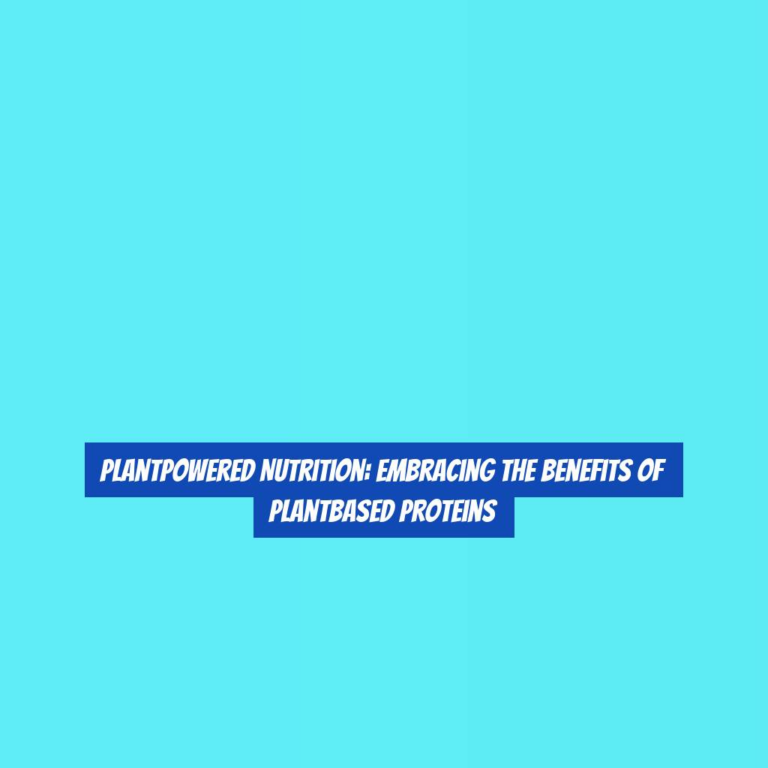Flexing for Plants: Enhancing Your Diet with PlantBased Foods
You may be skeptical about the idea of incorporating more plant-based foods into your diet, especially if you have concerns about getting enough protein or finding satisfying options.
However, as you explore the diverse world of plant-based eating, youG??ll find that there are numerous health benefits and delicious recipes waiting to be discovered.
By making simple changes and learning about the nutrient-rich options available, you can enhance your diet in ways you may not have considered before.
Are you ready to unlock the potential of plant-based foods and elevate your overall well-being?
Health Benefits of Plant-based Foods
Enhance your overall health by incorporating a variety of plant-based foods into your diet. By doing so, you can reap numerous health benefits.
Plant-based foods are rich in essential vitamins, minerals, and antioxidants that can help boost your immune system, improve digestion, and lower the risk of chronic diseases such as heart disease and diabetes. Fruits and vegetables, in particular, are packed with fiber, which can aid in weight management and promote a healthy gut. Additionally, incorporating plant-based proteins like beans, lentils, and tofu can contribute to muscle development and overall physical strength.
Furthermore, plant-based foods are generally lower in saturated fats and cholesterol, making them beneficial for heart health. Consuming a variety of nuts, seeds, and whole grains can provide essential fatty acids and promote cardiovascular well-being. Moreover, the abundance of phytonutrients in plant-based foods can have anti-inflammatory and anti-cancer effects, further enhancing your overall health.
Incorporating plant-based foods into your diet not only provides nutritional benefits but also supports sustainable and environmentally friendly food choices. By making conscious decisions to include more plant-based options, you contribute to both your well-being and the health of the planet.
How to Transition to a Plant-based Diet
Transitioning to a plant-based diet can be achieved gradually by incorporating more fruits, vegetables, and plant-based proteins into your meals. Start by making small changes, such as having a meatless meal once or twice a week. Experiment with different plant-based recipes to find options that you enjoy. You can also try substituting traditional meat with plant-based alternatives like tofu, tempeh, or seitan.
Incorporating a variety of colorful fruits and vegetables into your meals not only adds nutritional value but also brings diversity to your diet.
Another helpful tip is to educate yourself about plant-based nutrition. Learn about the essential nutrients found in plant-based foods and how to ensure youG??re meeting your dietary needs. Additionally, consider seeking support from online communities or local groups of individuals whoG??ve successfully transitioned to a plant-based diet. Surrounding yourself with like-minded individuals can provide motivation and valuable tips.
Tips for Incorporating More Plant-based Foods
To gradually incorporate more plant-based foods into your diet, start by experimenting with new recipes and substituting traditional meat with plant-based alternatives. Try making a delicious stir-fry with tofu instead of chicken, or opt for a black bean burger instead of a beef patty.
Another tip is to focus on incorporating more fruits and vegetables into your meals. For example, add extra veggies to your pasta dishes, smoothies, and sandwiches. You can also explore different cooking methods like roasting, grilling, or steaming vegetables to enhance their flavors.
Additionally, consider gradually reducing the portion size of animal-based foods while increasing the portion size of plant-based foods on your plate. This can help you transition to a more plant-focused diet without feeling like youG??re missing out.
Lastly, donG??t be afraid to get creative in the kitchen. Experiment with different spices, herbs, and seasonings to add variety and excitement to your plant-based meals. By implementing these tips, you can seamlessly integrate more plant-based foods into your daily eating habits.
Nutrient-Rich Plant-based Recipes
Looking to add more nutrient-rich plant-based recipes to your diet? You can start by incorporating more leafy greens into your meals. Try making a vibrant kale and quinoa salad with a zesty lemon vinaigrette for a boost of vitamins, minerals, and fiber.
Another option is to experiment with different types of beans and legumes. Whip up a hearty lentil stew or create a flavorful chickpea curry to increase your intake of protein and essential nutrients.
Additionally, donG??t overlook the power of nuts and seeds. Snack on a handful of mixed nuts for a dose of healthy fats, or sprinkle chia seeds on your yogurt or smoothie for an omega-3 fatty acid kick.
Furthermore, you can elevate your meals by incorporating a variety of colorful fruits and vegetables. Blend up a refreshing green smoothie with spinach, pineapple, and banana for a burst of antioxidants and natural sweetness.
Lastly, donG??t forget to explore the world of whole grains. Swap out refined grains for brown rice, quinoa, or farro to add more fiber, vitamins, and minerals to your diet.
Sustainable and Ethical Aspects of Plant-based Eating
As you explore nutrient-rich plant-based recipes, considering the sustainable and ethical aspects of plant-based eating can provide a greater understanding of the impact of your food choices on the environment and animal welfare. By choosing plant-based foods, you can contribute to reducing greenhouse gas emissions, preserving water resources, and minimizing habitat destruction associated with animal agriculture. This shift in dietary choices supports the conservation of biodiversity and helps combat deforestation, as it reduces the demand for land to raise livestock and grow animal feed.
Furthermore, embracing plant-based eating aligns with ethical considerations, as it promotes the avoidance of animal suffering and exploitation. By opting for plant-based alternatives, you can actively participate in creating a more compassionate food system that respects the welfare of animals. This conscious decision not only benefits the animals but also fosters a sense of ethical responsibility in your dietary habits.
In essence, incorporating sustainable and ethical aspects into your plant-based diet empowers you to make mindful choices that prioritize the well-being of the planet and its inhabitants. By doing so, you contribute to a more sustainable and compassionate food system while enjoying the diverse and nourishing array of plant-based foods.
Conclusion
So, next time youG??re at the grocery store, remember to pick up some colorful fruits and vegetables, whole grains, legumes, and nuts to flex for your plants.
By incorporating more plant-based foods into your diet, youG??ll not only be enhancing your health, but also contributing to a more sustainable and ethical food system.
Plus, with the right recipes and tips, youG??ll discover just how delicious and satisfying plant-based eating can be.
Happy flexing!






